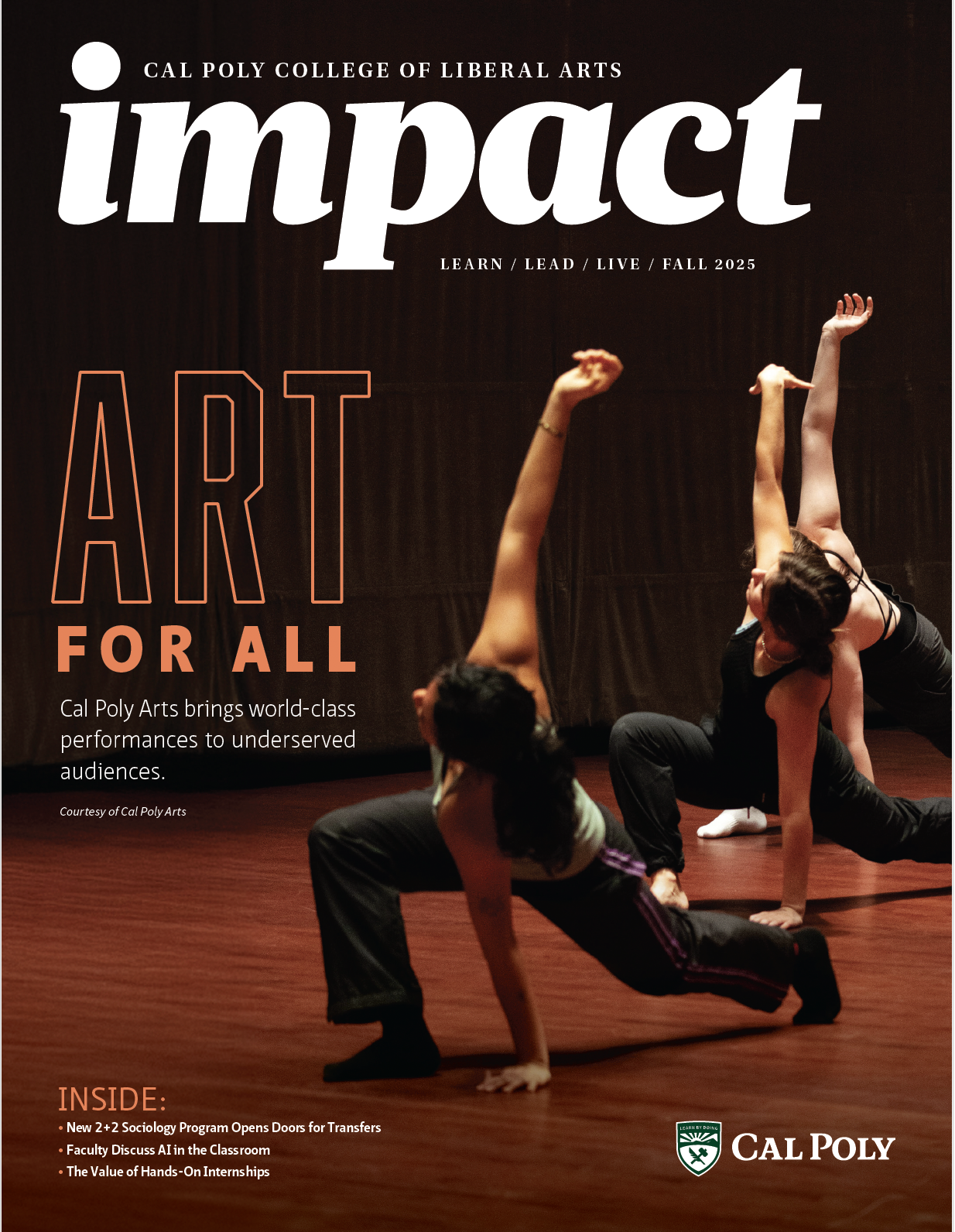Ethics + Emerging Sciences Group Announces Book
The Ethics + Emerging Sciences Group at Cal Poly today announced its new book, “Robot Ethics: The Ethical and Social Implications of Robotics.” Published by MIT Press this winter, this edited volume is the first to bring together many of the most respected experts in robotics and technology ethics to explain a full range of issues arising from current and future robots.
In the highly respected journal Nature, the book already received a positive review. Brad Allenby, Lincoln Professor of Engineering and Ethics at Arizona State University, wrote, “'Robot Ethics' succeeds as a standalone text, with its varied contributors striving for objectivity and avoiding hyperbole. The broad spread of applications discussed is key because the ethics differ depending on the use. Military robots, for instance, must be designed to obey the laws that govern warfare. Career robots must be capable of interacting with patients, who may give them trust and even affection.”
The new book quickly drew notice in the broader media as well, such as Harvard Business Review, Wall Street Journal, PC World and more. Locally, the book was featured in the cover story of San Luis Obispo’s New Times, which also discussed other robot-ethics work at Cal Poly.
One such work is the high-visibility role Cal Poly is playing with policymakers on the subject. Dr. Patrick Lin, director of the ethics group and lead editor of the MIT Press book, was recently invited to give a briefing to the U.S. intelligence community — including the CIA, NSA FBI, Department of Defense, State Department, and others — on ethical and policy surprises related to robotics. That briefing was circulated widely after it appeared in The Atlantic, a popular literary and cultural commentary magazine known for publishing essays by Martin Luther King, Jr., Mark Twain, Ralph Waldo Emerson, Oliver Wendell Holmes, and other notables. Lin also gave invited briefings this summer at a UNESCO workshop on informational warfare and a DARPA/National Academies of Sciences meeting on the social implications of emerging military technologies.
Lin is also an assistant philosophy professor at Cal Poly. His co-editors on "Robot Ethics" are Keith Abney, senior lecturer in philosophy, and Professor George Bekey, professor emeritus at USC and now a research scholar at Cal Poly. The trio also is known for their work on the 2008 report “Autonomous Military Robotics: Risk, Ethics and Design”, funded by C3RP/Office of Naval Research, which also received international media, academic and policy attention.
For the group’s ongoing Technology, Policy and Ethics lecture series at Cal Poly, Lin expects to host a talk by Ryan Calo — a director at Stanford Law School’s Center for Internet and Society — on the increasing use of surveillance drones and their impact on privacy. More details, including timing, will be posted as they are finalized.
For more information about the MIT Press book, please contact Dr. Patrick Lin.
About Ethics + Emerging Sciences Group
Based at Cal Poly, San Luis Obispo, the Ethics + Emerging Sciences Group is a non-partisan research and educational organization focused on the risk, ethical and social impacts of emerging technologies. Current projects and interests are related to issues in robotics, human enhancement, nanotechnology, geoengineering, space development and other areas.




